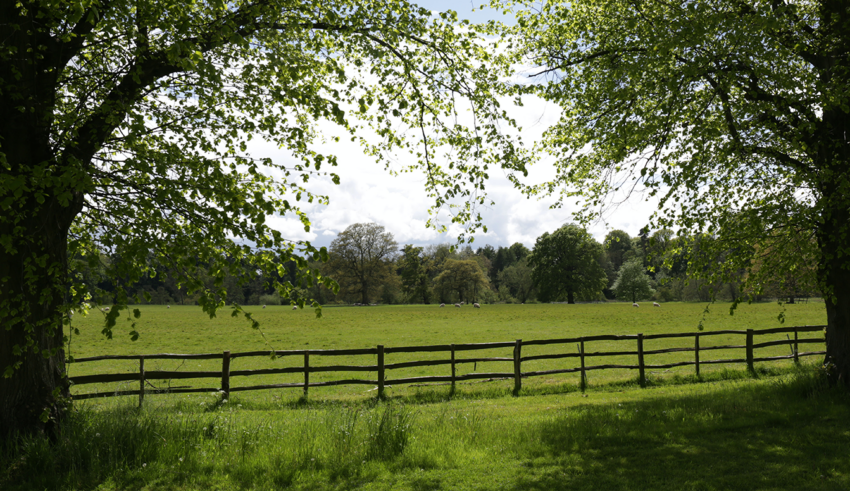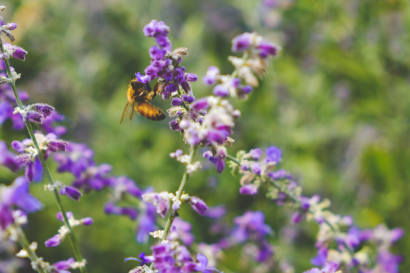AG INSIGHT | 13/05/2020
A wake-up call for action on agricultural sustainability – how COVID-19 can shape the future of farming

Josephine Head, Senior Research Lead on Sustainable Agriculture at Earthwatch Europe, reflects on the impact of the Covid-19 pandemic on the global food system, and how the UK agricultural sector needs to adapt, both in the short and longer-term.
The Covid-19 pandemic has affected our lives in major ways, from restricting where we can go and who we can meet; to what we can buy and whether we can continue to do our jobs. The organisational impacts have also been far-reaching, with many forced to adapt their business models or risk huge financial losses. Furthermore, the pandemic has shone an unforgiving light on the inequity of the global food system, although many of the problems exposed are both long-standing and systemic.
Advancing the sustainable agriculture agenda
Perhaps most publicly, the pandemic has highlighted the fragility of our supply chains and revealed how reliant our global food supply approach is on ‘business as usual’, with one shock able to disrupt the system and lead to shortages. This fragility has also been felt within the UK, where food supply is based around “just in time” delivery approaches and aligning with current customer demand. The impacts of Covid-19 on this approach to food supply have resulted in farmers struggling to get food from farms and onto people’s plates due to issues with distribution, while future UK supply is in doubt as a result of limited availability of seasonal farmworkers.
New opportunities and insights arising from the Covid-19 crisis
While the global pandemic has highlighted many challenges for the future of sustainable agriculture, it has also given rise to many new opportunities and provided valuable insights. These include:
1- People seeking out and appreciating nature and green spaces, and attaching more value to its presence.
2- Helping to highlight the interconnectedness between people, food and nature. This is a learning opportunity for developing the ELMS scheme – if our food system is to be secure and sustainable, then we must ensure that food, farming, trade and environmental policy are connected with one another too.
3- Communities becoming more connected with their local food sources and production, as local farmers with disrupted supply chains switch to delivering fruit, vegetable and meat boxes directly to their customers. This increased connection also makes people care for and be proud of their landscapes and food.
4- People thinking about food resilience and food sovereignty, and what it means to have sufficient locally grown food that doesn’t simply meet high standards and “do no harm”, but is actually restorative to soil health, biodiversity and climate change. This also highlights the importance of developing robust and equitable trade agreements post-Brexit.
5- Highlighting that numerous critical sectors of the UK economy depend directly on our soils and landscapes, including tourism (10% of the economy) and food and farming (3.7 million jobs), and that restoring and protecting these resources makes good business sense.
6- Emphasising the huge cost that poor environmental quality in the future will impose in terms of healthcare and lost productivity, and that investing in access to greenspace is essential to avoid this.
What next for agricultural stakeholders?
There is no avoiding the fact that Covid-19 has laid bare the existing inequity of the global food system, but it has also provided us with a snapshot into the probable future we will all endure if we do not address the impacts that the climate and environment emergencies are already having, and are anticipated to have, on food and farming. We have been given the chance to look inside the crystal ball, learn from the current crisis, and to adapt our actions accordingly. So what should this mean for those with a stake in agricultural policy and production?
At a policy level, it is imperative that the government recognises this opportunity by ensuring that they implement ambitious agricultural legislation that safeguards our natural capital (soils, water, air etc) and leaves our environment in a better state for the next generation. Reforms introduced in the Agriculture Bill, focused on ‘public money for public goods’, are more important now than ever to build the resilience of our food and farming sector in the face of future crises. Defra should take a more coherent, holistic view of food and farming policy and develop an overarching approach that integrates food, farming and the environment, and incentivises regenerative agricultural practices.
The impacts felt by the Covid-19 pandemic should also push businesses to accelerate both the ambition and scope of their sustainability objectives. There is no hiding from the fact that a healthy food business is reliant on a resilient food supply, which in turn is dependent on healthy soils and thriving biodiversity. Businesses should focus on building supply chains that are robust, agile and not reliant on air-freighted ingredients from all corners of the globe.
While the negative impacts of the Covid-19 pandemic may be far-reaching and felt for a long-time to come, this acts as a real wake-up call and we must take the lessons learned and harness them to bring about positive action around agricultural sustainability before the next crisis calls.



